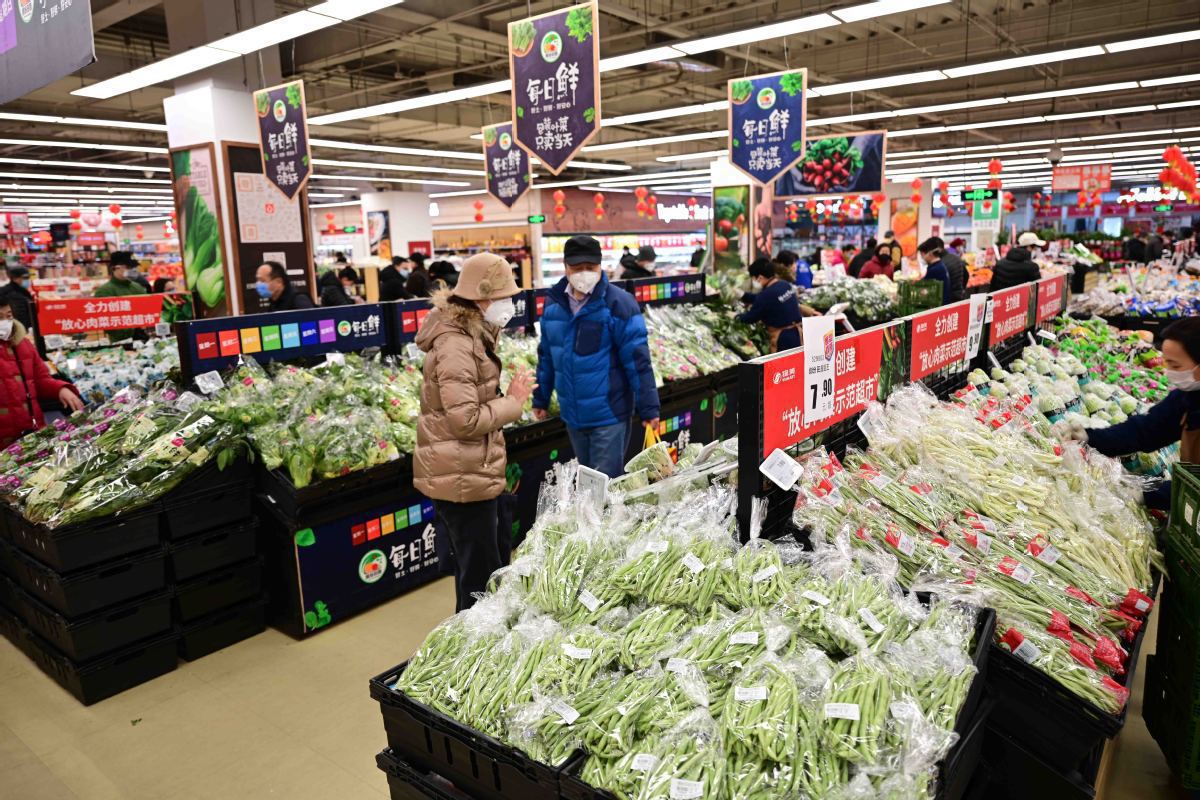Preemptive steps needed to contain CPI
By Wang Xiaosong | China Daily | Updated: 2020-03-11 07:05

China's consumer price index (CPI), the main gauge of inflation, grew 5.2 percent year-on-year in February, the National Bureau of Statistics said on Tuesday. The growth, in line with market expectations, was slightly lower than 5.4 percent in January. On a monthly basis, consumer prices edged up 0.8 percent.
Food prices, which account for nearly one-third of weighting in China's CPI, went up 21.9 percent year-on-year in February, contributing 4.45 percentage points to the rise in the index as the novel coronavirus outbreak disrupted market supplies and demands.
That the CPI has been above 5 percent for two consecutive months has raised fears that China could face high inflation in the long run, which could have a negative impact on people's livelihoods that have already been affected by the novel coronavirus epidemic.
But given the reasons for the rise in the CPI, there is no cause for serious concern. The so-called "pig breeding cycle", the extended Spring Festival holiday, the base period factor and the epidemic have all contributed to the rise in the CPI.
First, the prices of food products, cigarettes and wines rose 16 percent, with pork prices increasing by as much as 135.2 percent in February. Actually, pork prices have been increasing since last year, and although they began stabilizing, even declining, in December, the "pig breeding cycle" has played a key role in driving up the CPI.
Second, price hike is a normal phenomenon during Spring Festival, because people are less sensitive to prices when purchasing goods during China's most important festival.
Third, the CPI in January last year was relatively low because Spring Festival was celebrated in February 2019. No wonder the CPI in January this year was much higher compared with the same period in 2019. And the fact that the supply chains have been disrupted by the epidemic has worsened the shortage of supplies in February, including in the food sector.
And fourth, the novel coronavirus outbreak has had a serious impact on commodity prices. In particular, a huge number of businesses have been closed in order to contain the spread of the coronavirus. As a result, commodity supplies have fallen, which in turn has pushed up prices. Also, with people purchasing food and other essentials as emergency reserves, commodity prices have risen further.
If we analyze the demand and supply data, we will realize that the main factors driving up the CPI are temporary. As such, the CPI is expected to ease in the near future, as the coronavirus threat is being curbed.
Since the "pig breeding cycle" is expected to reach an inflection point soon and the authorities have taken strict measures to boost the supply of pigs, pork prices may start declining by the middle of the year. Also, as people's consumption pattern gradually returns to normal once the epidemic is controlled, commodity prices too are expected to gradually normalize.
More importantly, once the epidemic is contained in China, enterprises will restart normal operations, retailers will resume businesses, and traffic restrictions will be gradually lifted, boosting commodity supply-and increasing demand.
Since this means the pressure of inflection still exists, the authorities need to take measures in advance to prevent large-scale price hike in the future.
China faces the challenge of not only making up for the loss caused by the coronavirus outbreak and guaranteeing healthy economic growth, but also stabilizing the CPI and preventing living costs from increasing. To achieve these goals-and promote supply-side structural reform-the government should adopt moderately loose fiscal and monetary policies.
Many enterprises have been forced to suspend their businesses due to the epidemic. In particular, some medium-sized, small and micro enterprises face the risk of shutdown. Therefore, fiscal policy should be aimed at cutting taxes and administrative fees, and increasing transfer payment, while monetary policy should be aimed at reducing the reserve ratio and interest rate to help enterprises overcome the impact of the epidemic.
The government should also take measures to ensure sufficient commodity supply as well as monitor market prices, in order to regulate the market.
The author is a researcher at the National Academy of Development and Strategy and a professor of economics at Renmin University of China. The views don't necessarily represent those of China Daily.
























